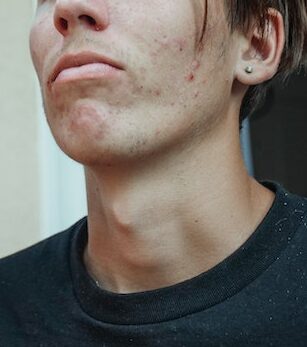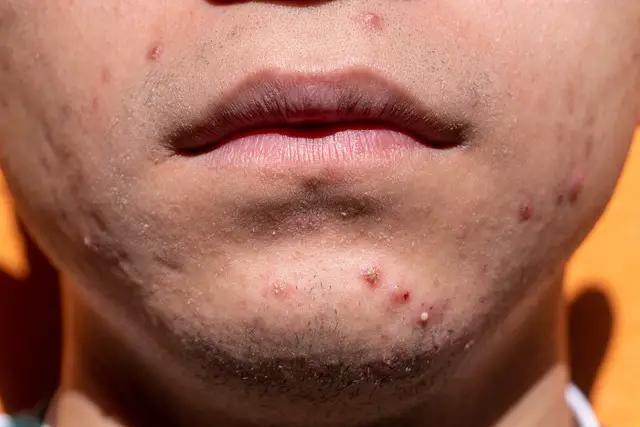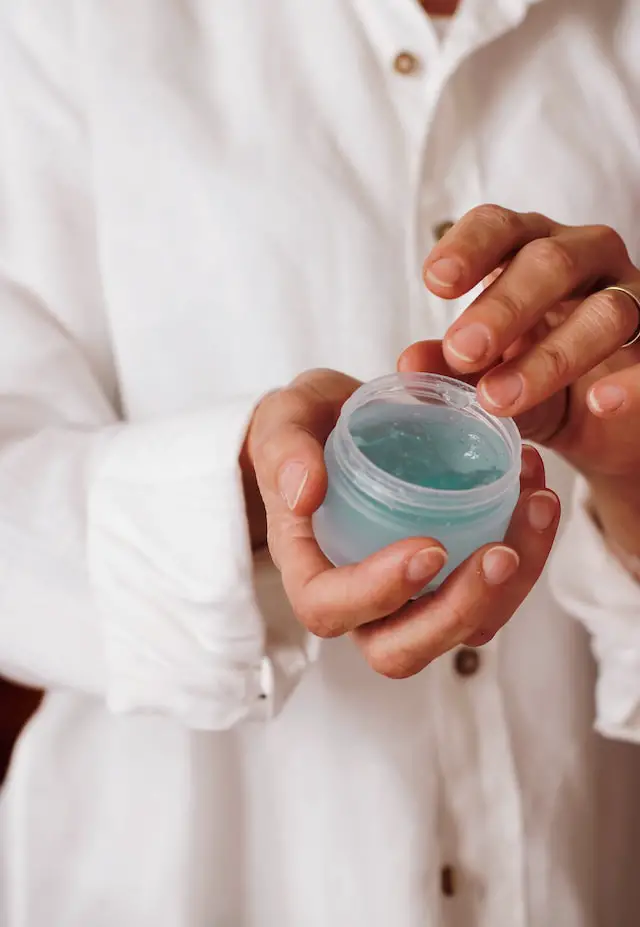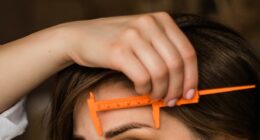Acne is a more serious skin condition that can lead to inflammation, infection, and scarring. Blemishes, on the other hand, are less serious and typically don’t cause any long-term damage.
What are blemishes?
(Photo by Kindel Media)

Blemishes are small, raised bumps on the skin that can be red, white, or black. They are often called pimples, zits, or spots. Blemishes can also be caused by certain medical conditions, such as rosacea or eczema. in other words blemishes are simply marks or imperfections on the skin. They can be caused by a variety of things, including acne, aging, sun damage, and more. Blemishes can occur anywhere on the body.
What causes blemishes?
Hormones: Hormonal changes can trigger blemishes. This is why many teenagers experience blemishes during puberty. Stress: Stress can also lead to blemishes. When you’re under stress, your body produces more of the hormone cortisol, which can increase oil production and lead to breakouts. Certain medications: Some medications, such as corticosteroids or lithium, can cause blemishes as a side effect.
Blemishes are generally caused by a combination of factors such as clogged pores, bacteria, and inflammation. Here are some of the main causes of blemishes:
- Hormonal Changes: Hormonal fluctuations, particularly during puberty, can cause the sebaceous glands to produce excess oil. This excess oil can lead to clogged pores and blemishes.
- Genetics: Your genetics can play a role in how much oil your skin produces and how prone you are to developing blemishes.
- Poor Diet: A diet high in sugar, dairy, and processed foods can contribute to inflammation and lead to blemishes.
- Stress: Stress can increase the production of cortisol, a hormone that can stimulate oil production and cause blemishes.
- Lack of Sleep: Lack of sleep can also increase cortisol levels, leading to an increase in oil production and blemishes.
- Environmental Factors: Exposure to pollution, UV rays, and harsh weather conditions can damage the skin and lead to blemishes.
- Using the Wrong Products: Using skincare or makeup products that are not suitable for your skin type or that contain comedogenic ingredients can contribute to clogged pores and blemishes.
It’s important to note that blemishes can also be a symptom of an underlying medical condition, such as polycystic ovary syndrome (PCOS) or rosacea. If you are experiencing persistent or severe blemishes, it’s best to consult a dermatologist.
How can I prevent skin blemishes?
Preventing skin blemishes requires a combination of good skincare habits, a healthy lifestyle, and avoiding triggers that can cause breakouts. Here are some tips to help prevent skin blemishes:
- Keep your skin clean: Wash your face twice a day with a gentle cleanser to remove dirt, oil, and makeup that can clog your pores.
- Exfoliate regularly: Use a gentle exfoliant to remove dead skin cells and unclog pores, but don’t overdo it, as excessive exfoliation can irritate your skin and cause more breakouts.
- Moisturize: Use a moisturizer that is suitable for your skin type to help keep your skin hydrated and healthy.
- Wear sunscreen: Protect your skin from UV rays by wearing sunscreen with at least SPF 30, even on cloudy days.
- Avoid touching your face: Touching your face can transfer bacteria and oils from your hands to your skin, leading to breakouts.
- Watch your diet: Eat a balanced diet that is rich in vitamins and minerals and avoid processed foods and sugar, which can contribute to inflammation and breakouts.
- Manage stress: Stress can trigger hormonal changes that can cause breakouts, so try to manage stress through exercise, meditation, or other relaxation techniques.
- Avoid using comedogenic products: Use skincare and makeup products that are labeled “non-comedogenic,” meaning they don’t clog pores.
- Get enough sleep: Aim for 7-8 hours of sleep per night to help your skin regenerate and heal.
Remember, everyone’s skin is unique, and what works for one person may not work for another. If you’re struggling with persistent or severe blemishes, consider consulting a dermatologist for personalized advice and treatment options.
What is acne?
(Image by Ortega Ulloa from Pixabay )

Acne is a skin condition that occurs when your hair follicles become plugged with oil and dead skin cells. Acne can occur on the face, chest, back, or anywhere else where there are hair follicles. The main symptom of acne is pimples, which can be whiteheads, blackheads, or cysts. It is characterized by the appearance of pimples, blackheads, whiteheads, and other blemishes. Acne can occur on the face, neck, chest, back, and shoulders.
What causes acne?
Acne is a common skin condition that occurs when hair follicles become clogged with oil and dead skin cells, resulting in the formation of pimples, blackheads, and whiteheads. Here are some of the main causes of acne:
- Excess oil production: The sebaceous glands in the skin produce an oily substance called sebum, which helps lubricate the skin. However, when the sebaceous glands produce too much oil, it can mix with dead skin cells and clog pores, leading to acne.
- Bacteria: Propionibacterium acnes (P. acnes) is a type of bacteria that lives on the skin and can contribute to acne when it grows in excess.
- Hormonal changes: Hormonal changes during puberty, menstruation, pregnancy, and menopause can cause the sebaceous glands to produce more oil, leading to acne.
- Genetics: Acne can run in families, and certain genetic factors can make some people more prone to developing acne.
- Diet: Studies have shown that a diet high in dairy, sugar, and refined carbohydrates may contribute to the development of acne.
- Medications: Some medications, such as corticosteroids, lithium, and androgens, can contribute to acne.
- Environmental factors: Exposure to pollution, high humidity, and sweating can also contribute to acne.
- Friction or pressure: Prolonged pressure or friction on the skin, such as wearing tight clothing or helmets, can contribute to the formation of acne in those areas.
It’s important to note that not all acne is the same, and the causes of acne can vary from person to person. If you are experiencing persistent or severe acne, it’s best to consult a dermatologist for personalized advice and treatment options.
How is acne treated?
Acne can be treated in a variety of ways, depending on the severity and type of acne. Here are some of the most common treatments for acne:
- Topical treatments: Over-the-counter (OTC) or prescription topical treatments, such as benzoyl peroxide, salicylic acid, retinoids, or antibiotics, can help reduce inflammation, unclog pores, and kill bacteria. These treatments are applied directly to the skin.
- Oral medications: Prescription oral medications, such as antibiotics, hormonal medications, or isotretinoin, can be used to treat acne that is more severe or persistent.
- Chemical peels: Chemical peels can help exfoliate the skin and unclog pores, and may be recommended for more severe acne or acne scarring.
- Light therapy: Blue light therapy can help kill bacteria that contribute to acne, while red light therapy can help reduce inflammation and promote healing.
- Extraction: In some cases, a dermatologist may perform a procedure to manually remove blackheads or whiteheads.
- Lifestyle changes: Making lifestyle changes, such as following a healthy diet, managing stress, and avoiding triggers that can exacerbate acne, can also help reduce the frequency and severity of breakouts.
It’s important to note that acne treatments can take time to work, and it may take several weeks or months before you see improvement. Additionally, some treatments may cause side effects, such as dryness, peeling, or sensitivity, so it’s important to follow your dermatologist’s instructions and report any side effects you experience.
Featured Image By – Nati Melnychuk on Unsplash








